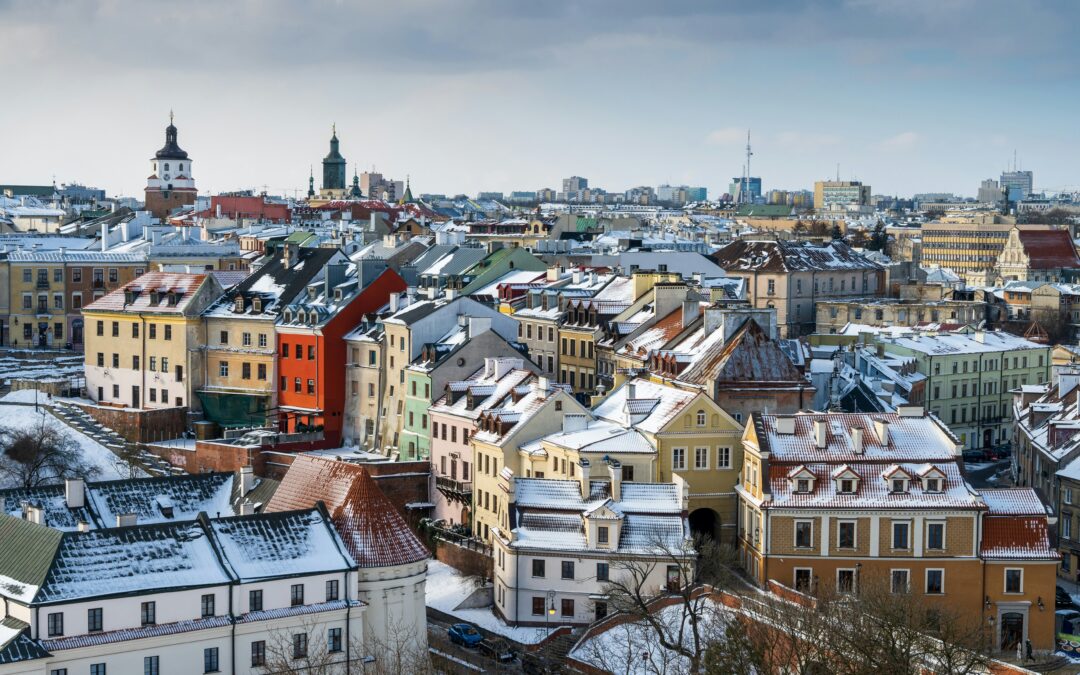Lublin in Poland has been selected as a European Capital of Culture for 2029, a prestigious title that the city hopes will raise its profile, boost the economy and support local culture.
“We have once again proven that Lublin’s culture and its creators have enormous potential,” said mayor Krzysztof Żuk. His city, which is located in eastern Poland, will be Poland’s third to hold the title since the European Capitals of Culture programme was launched almost 40 years ago.
🎉 Lublin has been named the European Capital of Culture for 2029!
✨ This vibrant city, already known as the European Youth Capital of 2023, is now getting ready to showcase its unique cultural flair to the rest of Europe. We can’t wait to see what 2029 will bring!#Lublin2029 pic.twitter.com/JxWt6o6DuJ— Poland Travel (@PolandTravel_UK) September 26, 2024
Under the initiative, the European Union designates a city or several cities to hold a series of events to promote local culture and art for one calendar year. Since its founding in 1985, over 60 places have been European Capitals of Culture, including Kraków (2000) and Wrocław (2016) in Poland.
Lublin, which, with a population of around 330,000 is Poland’s eight largest city, hopes that holding the title will benefit not only local culture but also the economy and society more broadly.
“The experience of other cities shows that receiving the title has been a powerful boost for development,” the city wrote in a statement. “It means hundreds of events attracting thousands of tourists and enormous promotion within Poland and globally.”
“It also increases opportunities for reaching out for European funds, to develop infrastructure and support social and cultural initiatives,” they added.
Sorry to interrupt your reading. The article continues below.

Notes from Poland is run by a small editorial team and published by an independent, non-profit foundation that is funded through donations from our readers. We cannot do what we do without your support.
In applying to be European Capitals of Culture, Lublin chose as its slogan “RE:UNION”, referring to the historic Union of Lublin that created the Polish-Lithuanian Commonwealth.
The title is supposed to be “understood as renewed integration, mending broken bonds, and intergenerational, cross-sectoral, intercultural dialogue”, says the city.
Its proposed programme includes projects intended to support artistic education for children and young people, student culture, senior residents’ activation and participation, and the development of creative industry entities.
The budget for the programme is estimated to reach €55 million (235 million zloty), with 85% expected to come from public funds, including €12.5 million from the city itself, €24.5 million (104.6 million zloty) from the culture ministry and €3.5 million from the European Union.
A video portal that until now has provided a live feed between Lublin and Vilnius has been connected to New York and Dublin, allowing people in the four cities to see – and interact with – one another in real time https://t.co/OkOwhBnBiz
— Notes from Poland 🇵🇱 (@notesfrompoland) August 30, 2024
“The European Capital of Culture is not only prestige. It is first and foremost a tremendous opportunity to build a strong international brand, to attract thousands of tourists and investors, and above all to strengthen local identity, to build community,” said Polish culture minister Hanna Wróblewska.
Twelve Polish cities applied to be named as the country’s European Capital of Culture in 2029. As well as Lublin, they were Bielsko-Biała, Bydgoszcz, Jastrzębie-Zdrój, Katowice, Kielce, Kołobrzeg, Opole, Płock, Pszczyna, Rzeszów and Toruń.
Four of them were shortlisted: Bielsko-Biała, Katowice, Kołobrzeg, and Lublin. Their applications were assessed by independent experts appointed by the European Parliament, the Council of the EU, the European Commission, the Committee of the Regions, and the Polish culture ministry.
A new bus station hailed as the "most beautiful in Poland" has opened in Lublin.
The building includes a range of features designed to reduce its environmental impact https://t.co/UXIXuy7k4z
— Notes from Poland 🇵🇱 (@notesfrompoland) January 20, 2024
Main image credit: Tomasz Zielonka / Unsplash

Alicja Ptak is deputy editor-in-chief of Notes from Poland and a multimedia journalist. She has written for Clean Energy Wire and The Times, and she hosts her own podcast, The Warsaw Wire, on Poland’s economy and energy sector. She previously worked for Reuters.



















